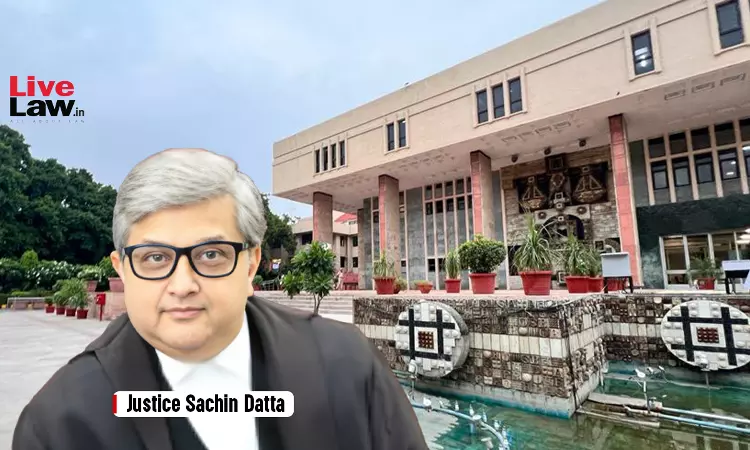- Home
- /
- High Courts
- /
- Delhi High Court
- /
- Reasons For Inclusion Of Name In...
Reasons For Inclusion Of Name In CBI's List Of 'Undesirable Contact Men' Prima Facie Not Exempt From RTI Act: Delhi High Court
Sanjana Dadmi
24 April 2025 11:49 AM IST
The Delhi High Court has observed that inclusion of an individual's name in an intelligence agency's list of 'Undesirable Contact Men' and publication of the same in newspaper and official website prima facie violates 'human rights' within the meaning of Section 24(1) of the Right to Information (RTI) Act.For context, Section 24(1) of the RTI Act states that the Act will not apply to...
The Delhi High Court has observed that inclusion of an individual's name in an intelligence agency's list of 'Undesirable Contact Men' and publication of the same in newspaper and official website prima facie violates 'human rights' within the meaning of Section 24(1) of the Right to Information (RTI) Act.
For context, Section 24(1) of the RTI Act states that the Act will not apply to intelligence and security organisations specified in the Second Schedule. However, the proviso to Section 24(1) states that information pertaining to the allegations of corruption and human rights violations shall not be excluded from the Act.
Justice Sachin Datta was considering a Chartered Accountant's challenge to the Central Information Commission's (CIC) order rejecting his RTI application.
The petitioner's name was included in a list of 'Undesirable Contact Men' (UCM) circulated by the CBI and subsequently published in various newspaper clippings. The news clipping with CBI's emblem was uploaded on the CBI's official website. As per the news reports, government officials were cautioned against dealing or associating with, or accepting hospitality and gifts from individuals named in the UCM list.
The petitioner then filed an RTI application before the Central Public Information Officer (CPIO), seeking specific details regarding his name's presence on the list, the reasons for such inclusion and the procedure followed.
The Assistant Inspector General of Police (Policy Division), who also functions as the CPIO, rejected the petitioner's RTI application on the ground that the CBI is exempt from disclosing information in view of Section 24(1) of RTI Act. As per a government notification dated 09.06.2011, CBI was included in the Second Schedule of the RTI Act and thus exempt from the Act in view of Section 24(1).
The petitioner then filed an appeal before the First Appellate Authority, which was rejected. His second appeal before the Central Information Commission (CIC) was also rejected. The petitioner thus filed the present petition challenging CIC's order.
The petitioner argued that the proviso to Section 24(1) of the Act clearly contemplates that information pertaining to allegations of corruption and human rights violations shall not be exempt from disclosure under the RTI Act. He contended that since the inclusion of his name in the UCM list has subjected him to public scrutiny and professional ostracisation without due process, it infringed his human rights and dignity.
The High Court noted that while Section 24(1) exempts intelligence and security organisations such as the CBI from the purview of the RTI Act, the proviso to Section 24(1) RTI Act explicitly states that information related to allegations of corruption and human rights violations shall not be excluded from disclosure.
The Court opined that the publication of the petitioner's name prima facie was a violation of human rights as it harmed his dignity and professional standing.
“Prima facia, this Court finds merit in the petitioner's argument that the publication of his name, in the manner aforesaid, has resulted in a violation of human rights as the same has harmed his dignity and professional standing.”
The Court noted that the petitioner rightly placed reliance on Union Of India vs. Central Information Commission & Anr (2022 LiveLaw (Del) 237), where the Delhi High Court observed that the expression 'human rights' under the RTI Act cannot be given a narrow or pedantic meaning.
However, the Court noted that the petitioner did not raise the contention of human rights violation before the CIC or the first appellate authority.
It thus remanded the matter to CIC for a fresh determination. It asked the CIC to consider the issue of human rights violation and determine whether the information sought falls within the exception carried out in the proviso to Section 24(1) of the RTI Act.
Case title: Vinod Kumar Bindal vs. Central Information Commissioner & Ors
Citation: 2025 LiveLaw (Del) 463
Click Here To Read/Download Order



